What is a Marketing Qualified Lead (MQL)
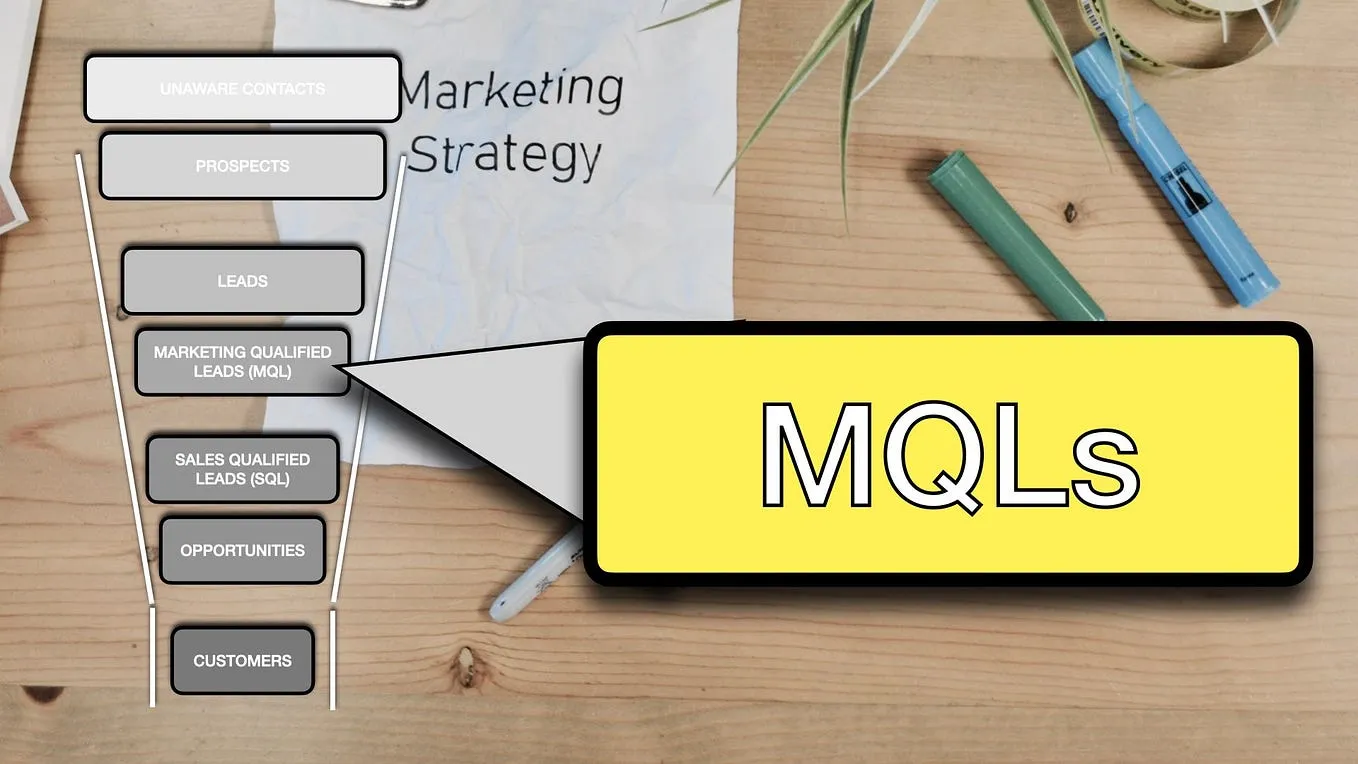
A Marketing Qualified Lead (MQL) is a prospect who has been identified as more likely to become a customer compared to other leads, based on their engagement with a company's marketing efforts.
This qualification is determined through lead scoring, which evaluates a lead's behavior and engagement level, such as downloading content, visiting pricing pages, or showing interest in specific services.
Importance of MQL
The importance of MQLs lies in their potential to streamline the sales process. By focusing on leads that have already shown a significant level of interest, sales teams can allocate their resources more efficiently, targeting individuals who are closer to making a purchase decision.
This not only optimizes the sales funnel but also enhances the alignment between sales and marketing teams, ensuring that marketing efforts are targeted towards generating high-quality leads that contribute to the company's revenue.
Criteria for a Lead to be Considered as MQL
For a lead to be considered a Marketing Qualified Lead (MQL), it must meet certain criteria that indicate a higher likelihood of progressing through the sales funnel towards a purchase.
These criteria are typically established by both the marketing and sales teams to ensure alignment on what qualifies as a lead ready for the next stage of engagement. Key criteria include:
1. Engagement Level
The lead has actively engaged with the company's marketing content, such as downloading whitepapers, attending webinars, or repeatedly visiting the website, especially pricing pages or product information sections.
2. Lead Scoring
The company employs a lead scoring system where points are assigned based on specific actions or online behaviors. An MQL has reached or exceeded a certain score threshold, indicating readiness for further sales engagement.
3. Demographic Information
The lead matches the company's ideal customer profile (ICP) in terms of job title, industry, company size, or other relevant demographic or firmographic factors.
4. Behavioral Indicators
Specific behaviors, such as spending time on critical web pages, repeated visits, or engagement with bottom of funnel content, signal a deeper interest in the product or service.
5. Pain Points and Needs
The lead has expressed specific needs or challenges that the company's product or service can address, often identified through lead nurturing efforts, surveys, or interactions on social media.
6. Lead Source
Leads generated from targeted marketing campaigns or sources that historically convert at higher rates may be more quickly classified as MQLs.
7. Contact Requests
Direct inquiries about products, services, or pricing information through contact forms, emails, or phone calls can also qualify a lead as an MQL.
What is a Sales Qualified Lead (SQL)
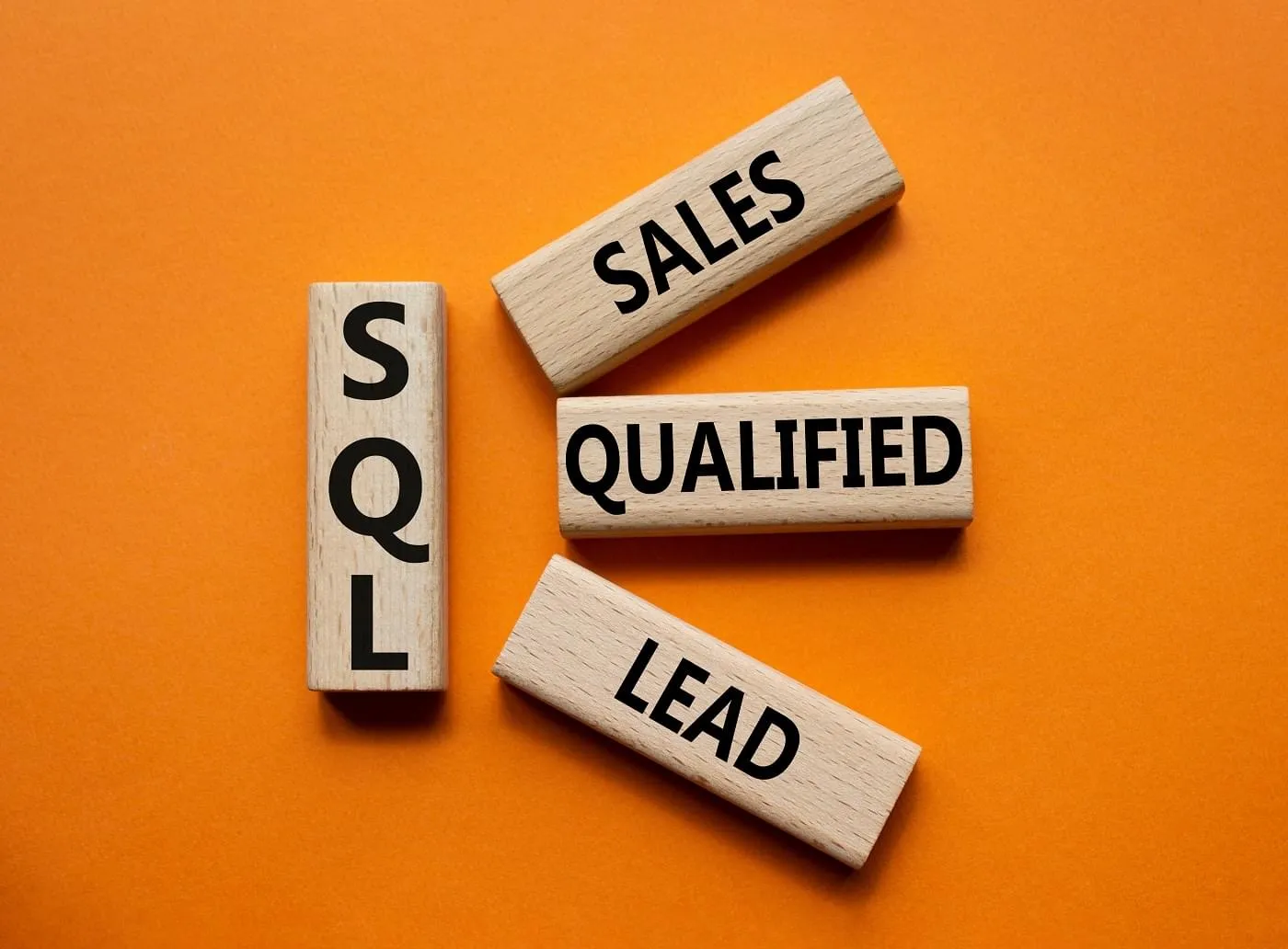
A Sales Qualified Lead (SQL) is a prospect that has been evaluated both the marketing and sales teams as ready for direct sales engagement.
This evaluation is based on the lead's fit with the company's ideal customer profile, demonstrated interest in the product or service, and readiness to make a purchasing decision.
Unlike Marketing Qualified Leads (MQLs), which are identified through marketing activities and lead scoring for their potential interest, SQLs are further along in the buyer's journey and have explicitly shown intent to buy or have met specific criteria that indicate a high likelihood of becoming a customer.
Importance of SQL
The importance of SQLs lies in their high conversion potential. When a lead reaches the SQL stage, it means they have passed through the initial stages of the sales funnel, including awareness and consideration, and have shown a clear interest in making a purchase.
This makes SQLs crucial for efficient sales processes, as focusing on SQLs allows sales representatives to allocate their time and resources toward leads with the highest likelihood of closing.
This not only improves the sales team's efficiency but also significantly increases the chances of boosting the company's revenue. In essence, SQLs represent a critical juncture in the sales and marketing alignment, ensuring that marketing efforts yield tangible sales opportunities.
Criteria for a Lead to be Considered as SQL
For a lead to be considered a Sales Qualified Lead (SQL), it must meet specific criteria that demonstrate a clear readiness and intent to purchase. These criteria ensure that the sales team’s efforts are focused on leads with the highest likelihood of closing. Key criteria for a lead to be classified as an SQL include:
1. Expressed Purchase Intent
The lead has clearly indicated an interest in buying the product or service, either through direct communication (like inquiring about pricing or asking detailed product questions) or by actions that imply purchase intent (such as requesting a demo or a quote).
2. Fit with Ideal Customer Profile (ICP)
The lead matches the company’s ideal customer profile in terms of industry, company size, budget, authority, need, and timeline. This ensures that the lead has the potential not just to make a purchase but to become a valuable, long-term customer.
3. Engagement with Sales Team
The lead has engaged in meaningful conversations with the sales team, providing insights into their specific needs, challenges, and decision-making process. This engagement often includes responses to follow-ups, participation in meetings or calls, and a willingness to discuss next steps.
4. Qualification Through Lead Scoring
Similar to MQLs, SQLs are often subject to a lead scoring process. However, the criteria for SQLs are more stringent, focusing on actions and engagements that indicate a readiness to buy, such as visiting the pricing page multiple times or engaging in a sales call.
5. Budget Confirmation
The lead has confirmed they have the budget allocated for the purchase. This is a crucial criterion as it directly affects the lead’s ability to buy.
6. Authority to Make Purchase Decisions
The lead has the authority, or direct access to the authority, required to make the purchase decision. This ensures that sales efforts are directed towards individuals who can actually close the deal.
7. Timeline for Purchase:
The lead has a defined timeline for making the purchase decision, indicating urgency and a clear path to conversion.
8. Pain Point and Solution Match
The lead has clearly defined pain points or challenges that the product or service can address effectively, and there has been a match between the lead’s needs and the solution offered.
Marketing Qualified Leads vs. Sales Qualified Leads
Key Difference Between MQLs and SQLs
- Stage in the Sales Funnel: MQLs are earlier in the funnel, having shown interest but not necessarily readiness to buy. SQLs are further down the funnel, ready for sales engagement.
- Qualification Process: MQLs are identified by marketing activities and engagement levels, while SQLs are vetted through direct interaction and readiness for purchase.
- Engagement Level: MQLs may have engaged with educational or top-funnel content, while SQLs have shown specific interest in purchasing or have interacted with sales-oriented content.
Why This Process Matters
The distinction between MQLs and SQLs helps streamline the sales process, ensuring that the sales team's efforts are focused on leads most likely to convert, thereby increasing efficiency and effectiveness.
According to Marketo, companies with well-aligned sales and marketing teams experience a 67% higher probability of closing deals. Furthermore, a study by the Aberdeen Group found that companies with strong sales and marketing alignment achieved a 20% annual growth rate.
Transition MQLs to SQLs in the Sales Funnel
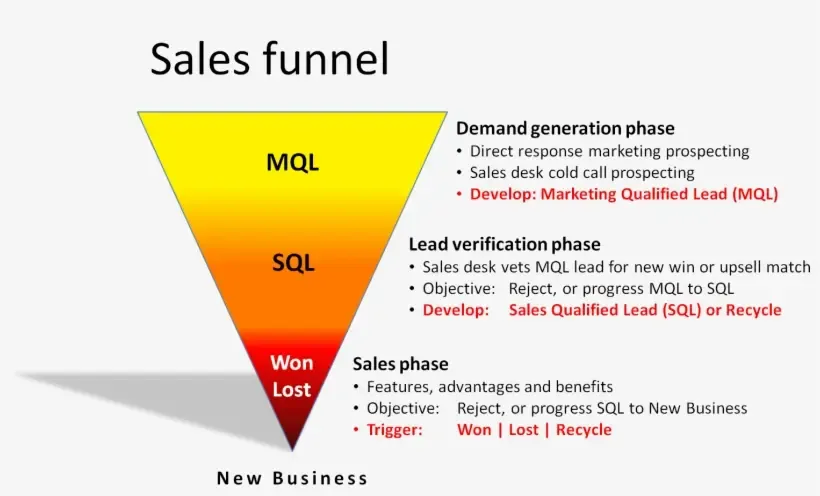
Understanding and optimizing this transition can significantly impact a business's ability to close deals and drive revenue.
Here's how the transition typically occurs within the sales funnel:
Top of the Funnel: Attraction and Engagement
- Initial Contact: Prospects enter the top of the funnel through various marketing efforts such as content marketing, social media, advertising, or events.
- MQL Identification: As these prospects interact with your marketing content (e.g., downloading a whitepaper, signing up for a webinar, or subscribing to a newsletter), they are scored based on their actions. When they reach a certain score or meet specific criteria, they are classified as MQLs, indicating a higher level of interest and engagement.
Middle of the Funnel: Nurturing and Qualification
- Nurturing: MQLs are nurtured with more targeted content, email campaigns, and engagement strategies designed to build trust, educate, and further qualify their interest and fit for your product or service.
- Further Qualification: Throughout the nurturing process, MQLs' interactions (such as engaging with specific content, attending webinars, or engaging in email conversations) are monitored to assess their readiness for a sales conversation.
Transition to SQL
- Sales Team Assessment: MQLs deemed ready for a more direct sales approach are passed to the sales team. The sales team then evaluates these leads based on additional criteria, such as budget, authority, need, and timeline (BANT), to determine if they are ready to enter the sales process.
- SQL Designation: Once a lead is confirmed to have a genuine interest and potential to purchase, they are designated as SQLs. This marks their readiness for direct sales engagement, presentations, demonstrations, and discussions about pricing and contracts.
Bottom of the Funnel: Closing the Deal
- Sales Engagement: The sales team actively engages SQLs with personalized communication, addressing specific needs and objections, aiming to move them towards making a purchase decision.
- Conversion: Successful negotiations and discussions lead to the conversion of SQLs into customers, culminating the transition process from MQL to SQL within the sales funnel.
Optimization Strategies
- Lead Scoring: Refining the criteria and scoring models used to identify MQLs can ensure only high-quality leads are passed to sales.
- Feedback Loop: Establishing a feedback loop between sales and marketing teams can help refine the transition criteria and process, ensuring leads are appropriately nurtured and qualified before handoff.
- Personalized Nurturing: Utilizing insights from lead interactions to tailor nurturing efforts can increase the conversion rate of MQLs to SQLs.
How to Track and Measure the Success of MQLs and SQLs

Tracking and measuring the success of Marketing Qualified Leads (MQLs) and Sales Qualified Leads (SQLs) is essential for understanding the effectiveness of your marketing and sales strategies, optimizing the sales funnel, and ultimately driving revenue growth.
Here’s a structured approach to effectively track and measure the success of MQLs and SQLs:
Setting Up the Tracking System
- Implement a CRM System: Utilize a Customer Relationship Management (CRM) system that integrates with your marketing automation tools. This allows for seamless tracking of leads from the moment they enter the funnel as MQLs to when they're converted to SQLs and beyond.
- Define MQL and SQL Criteria: Clearly define what actions or engagement levels qualify a lead as an MQL or an SQL. These criteria should be agreed upon by both marketing and sales teams to ensure alignment.
Key Metrics to Track
- Conversion Rates: Measure the conversion rate from MQL to SQL and SQL to a closed sale. This indicates the effectiveness of your lead qualification process and sales efforts.
- Time to Conversion: Track the average time it takes for an MQL to become an SQL and for an SQL to become a customer. This helps identify bottlenecks in the sales process.
- Source Efficiency: Analyze which marketing channels are generating the most MQLs and which channels produce MQLs with the highest conversion rates to SQLs. This insight allows for better allocation of marketing resources.
- Lead Score Improvement: Monitor changes in lead scores over time to gauge how well your nurturing efforts are improving the quality of MQLs, making them more likely to become SQLs.
Measuring Success
- ROI of MQLs and SQLs: Calculate the return on investment by comparing the revenue generated from converted SQLs against the cost of acquiring and nurturing MQLs. This metric is crucial for understanding the financial effectiveness of your lead management strategy.
- Sales Cycle Length: Measure the average length of the sales cycle from MQL to closed sale. A shorter sales cycle may indicate a more efficient process or more qualified leads.
- Customer Lifetime Value (CLTV): Assess the CLTV of customers acquired through the MQL and SQL process. Higher CLTV suggests that your process is effective in attracting and converting high-value customers.
Continuous Improvement
- Feedback Loops: Establish feedback loops between sales and marketing teams to discuss the quality of MQLs and SQLs, and identify areas for improvement in the lead qualification criteria and process.
- A/B Testing: Regularly test different qualification criteria, lead nurturing tactics, and sales approaches to optimize the conversion rates and efficiency of your sales funnel.
- Data-Driven Adjustments: Use the data collected to make informed adjustments to your marketing and sales strategies. For example, if certain types of content are consistently producing high-quality MQLs, focus more resources on creating similar content.
Tools to Identify MQLs and SQLs for Your Sales Process
Identifying Marketing Qualified Leads (MQLs) and Sales Qualified Leads (SQLs) accurately is essential for an effective sales process, enabling the marketing team and sales reps to efficiently target and engage with prospective customers.
Various tools can help businesses automate this identification, scoring, and nurturing process, making it more efficient and effective. Here are some of the most popular and powerful tools used for identifying MQLs and SQLs:
1. HubSpot
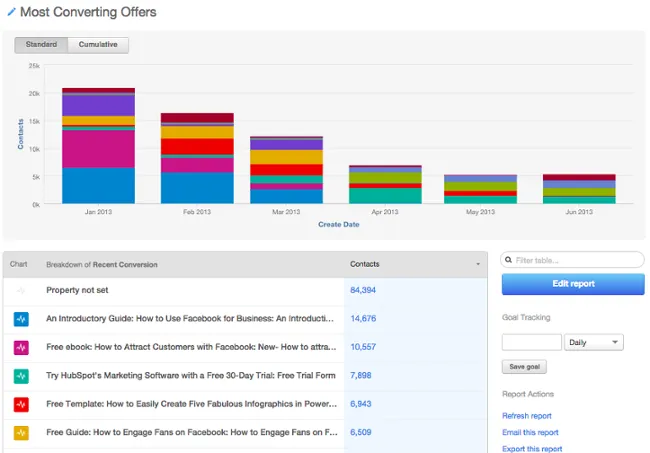
- Overview: HubSpot offers a comprehensive suite of tools covering CRM, marketing, sales, and service software. It excels in lead management and nurturing, with robust features for scoring leads based on their interactions with your content and engagement level.
- Features: Lead scoring, email marketing, workflow automation, and analytics, empowering the marketing team to effectively nurture prospective customers until they're ready for sales reps to take over.
2. Marketo
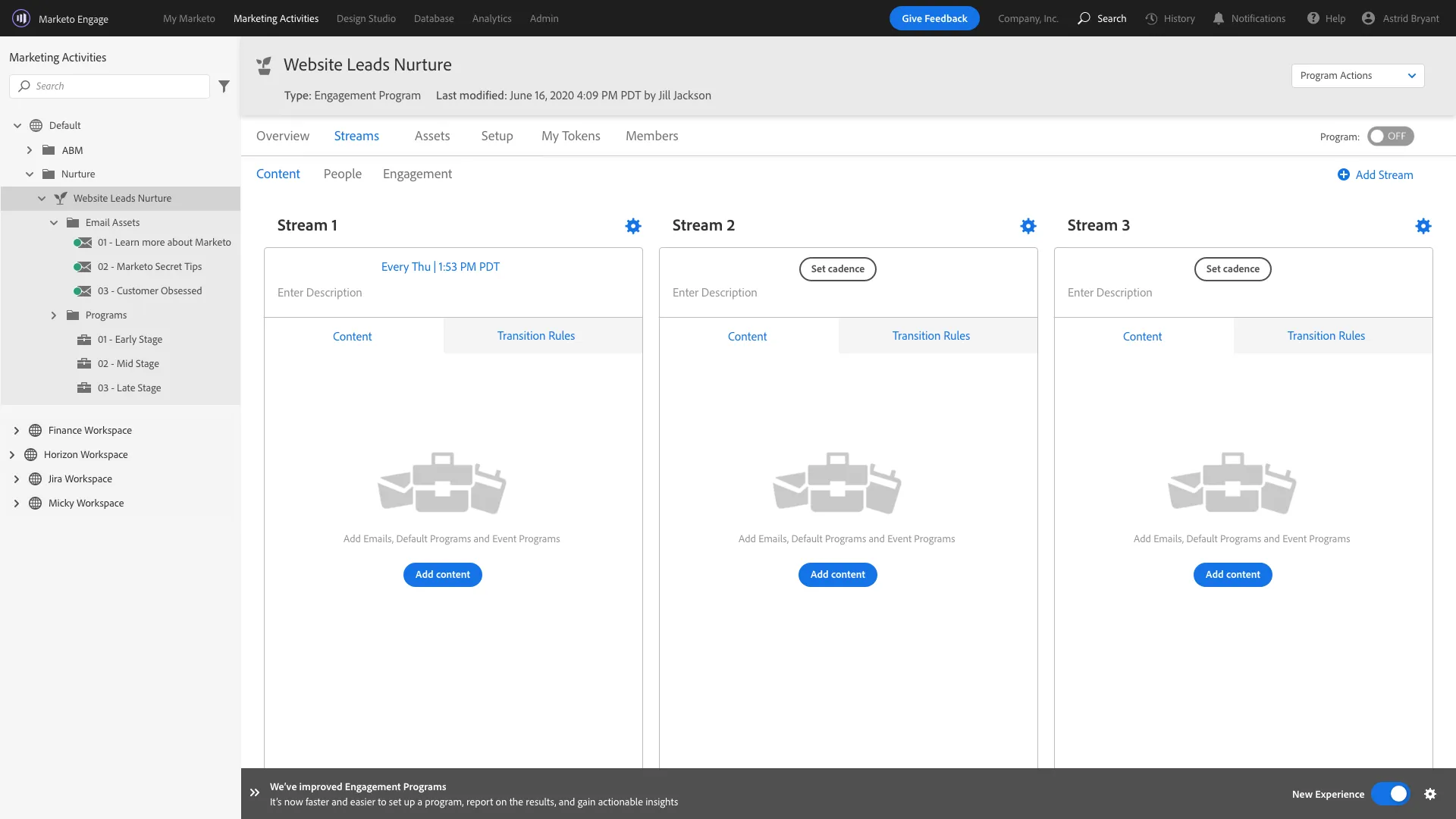
- Overview: Marketo, a part of Adobe Experience Cloud, is a leading marketing automation platform known for its strong lead management capabilities. It provides detailed scoring models that help distinguish between MQLs and SQLs, allowing marketing teams to deliver high-quality leads to sales reps.
- Features: Lead scoring, marketing automation, email campaigns, and a comprehensive analytics dashboard.
3. Salesforce Pardot
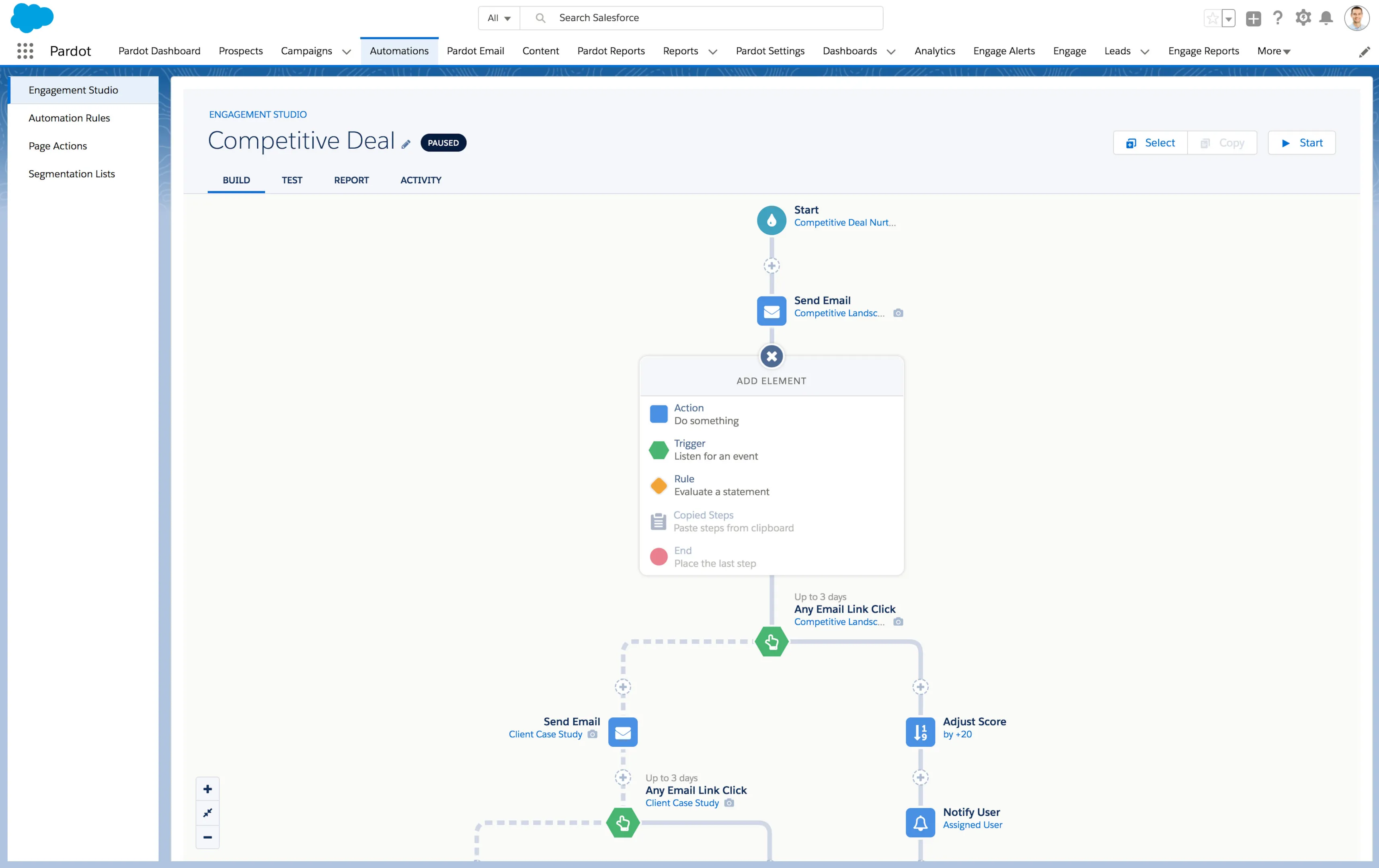
- Overview: Pardot, Salesforce's B2B marketing automation solution, excels in creating a seamless integration between your marketing and sales teams. It offers advanced lead scoring and nurturing tools to help identify and qualify leads, making the transition from a prospective customer to a qualified lead smoother for sales reps.
- Features: Advanced lead scoring, CRM integration, email marketing, and B2B marketing analytics.
4. LeadSquared
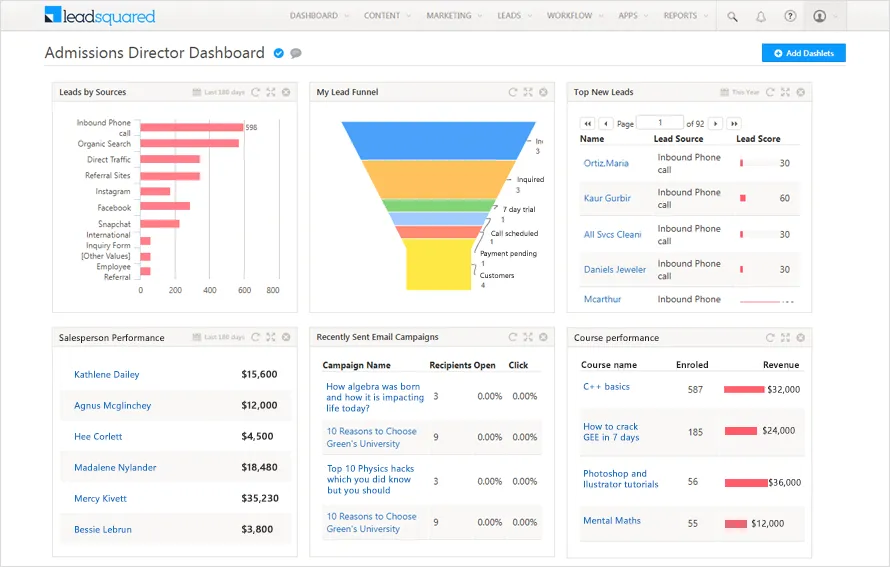
- Overview: LeadSquared is a sales execution and marketing automation platform that focuses on accelerating the lead capture process and shortening the sales cycle. It's particularly effective for businesses with a high-velocity sales model, ensuring sales reps can quickly engage with prospective customers.
- Features: Lead scoring, automation, landing pages, and analytics.
5. Infusionsoft by Keap
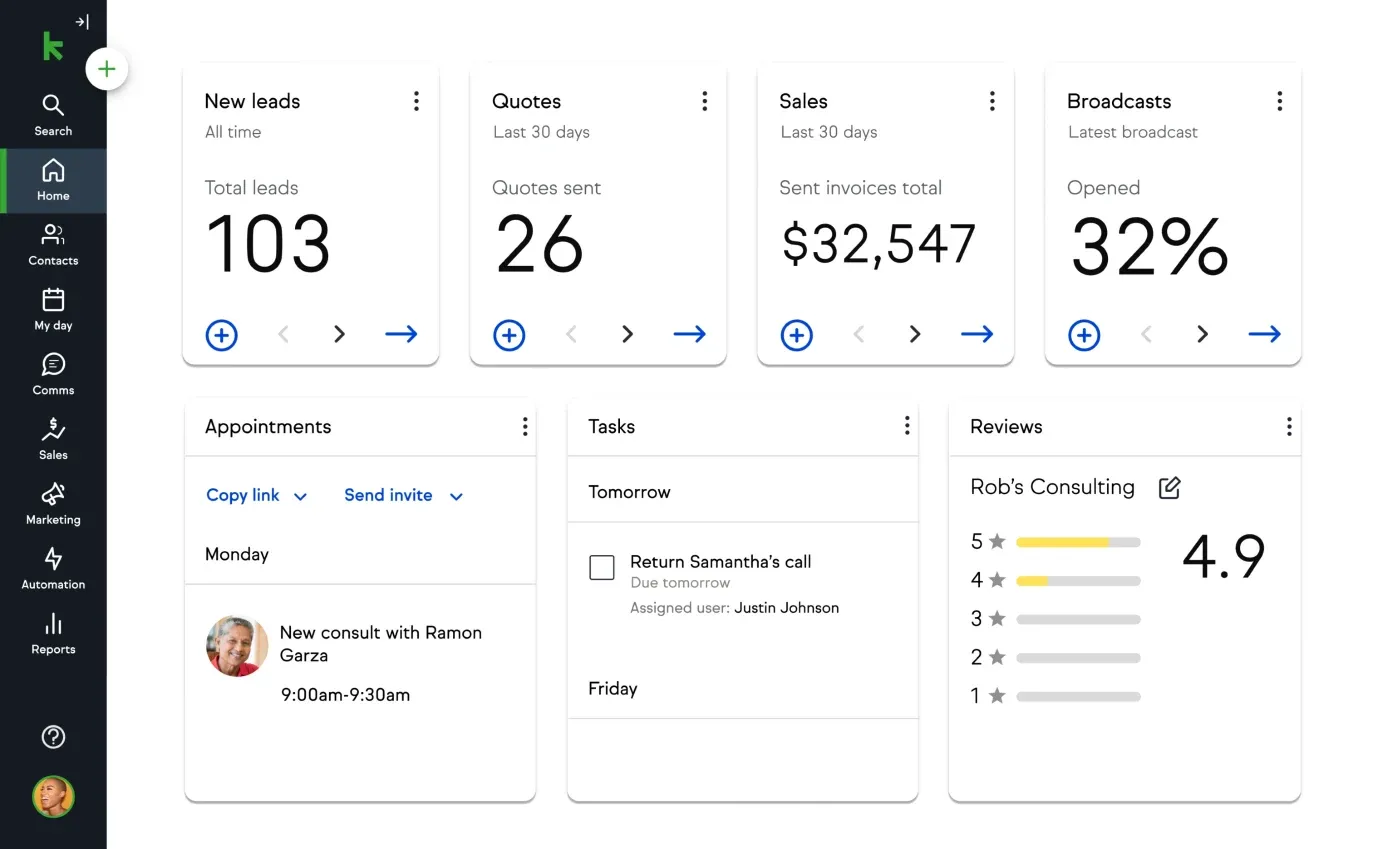
- Overview: Infusionsoft (now known as Keap) is designed for small businesses, offering CRM, marketing automation, sales automation, and payment solutions in one platform. It supports lead scoring to help prioritize and manage leads, enabling sales reps to focus their efforts on the most promising prospective customers.
- Features: CRM, marketing automation, lead scoring, and sales automation.
Concluding Thoughts
The key difference between Marketing Qualified Leads (MQLs) and Sales Qualified Leads (SQLs) lies in their readiness for sale. MQLs are prospects identified as likely customers based on engagement with marketing efforts, utilizing criteria such as behavior, engagement level, and demographics to score and prioritize leads. This process aims to streamline sales by focusing on individuals closer to making a purchase, enhancing sales and marketing team alignment.
SQLs, in contrast, are prospects vetted for direct sales engagement, having demonstrated clear purchase interest and aligning with the company's ideal customer profile. These leads are further along in the buying process, making them crucial for efficient sales operations and revenue growth.
Transitioning from MQL to SQL involves nurturing leads through targeted content and interactions, with the sales team taking over once a lead displays clear buying signals. Tracking and measuring the success of MQLs and SQLs requires a CRM system to monitor conversion rates, time to conversion, and source efficiency, among other metrics.
Tools like HubSpot, Marketo, Salesforce Pardot, LeadSquared, and Infusionsoft by Keap facilitate automating the lead scoring and nurturing process, helping businesses efficiently manage and convert leads. Continuous improvement through feedback, A/B testing, and data-driven adjustments is essential for optimizing the sales funnel.

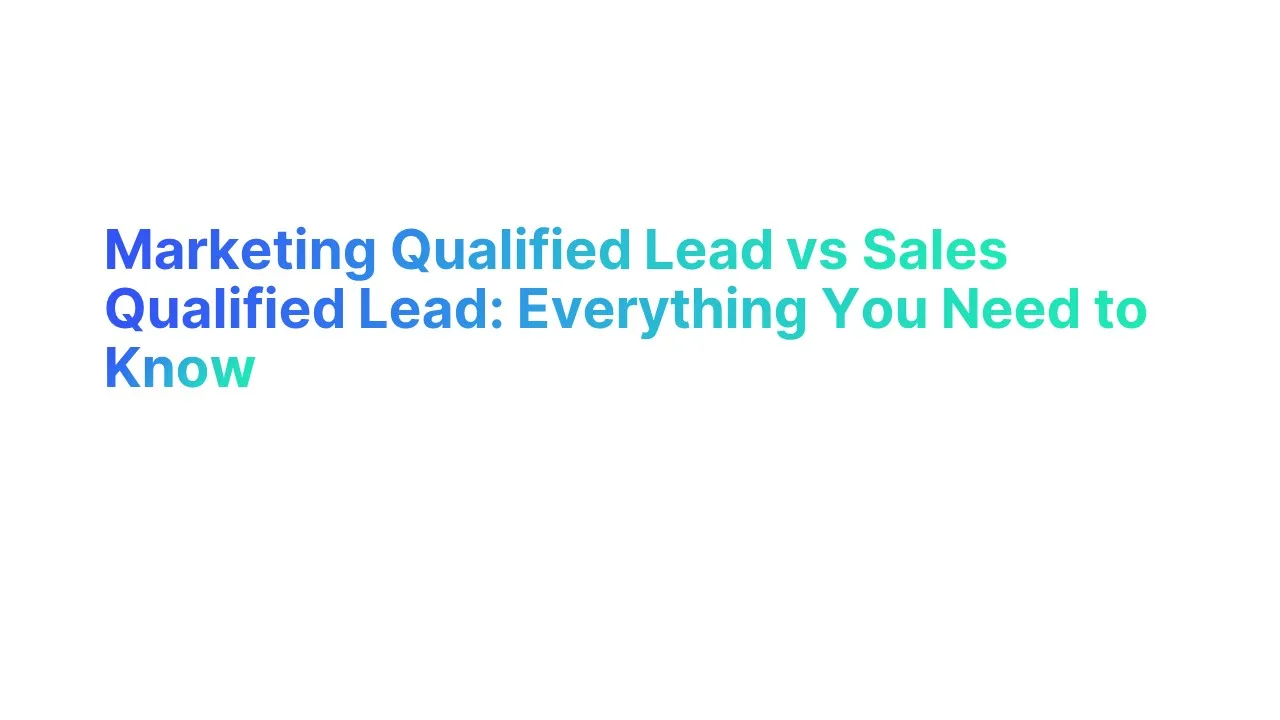



.jpg)

.jpg)
